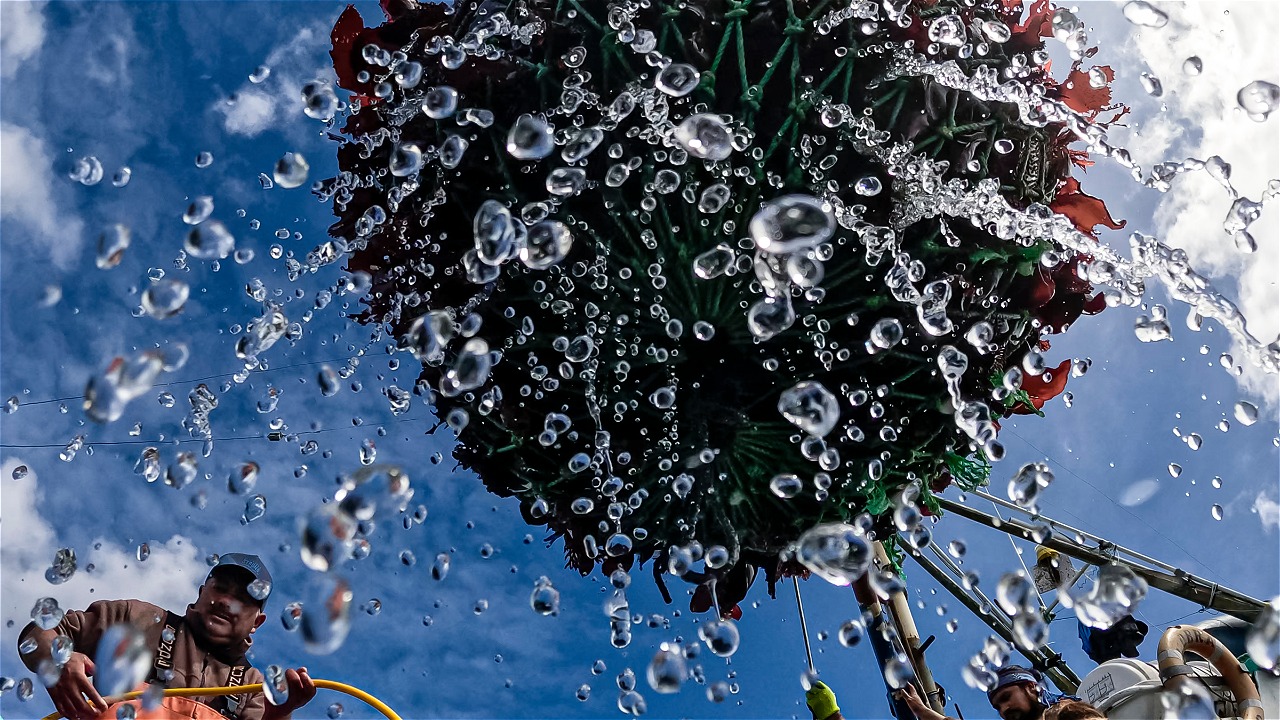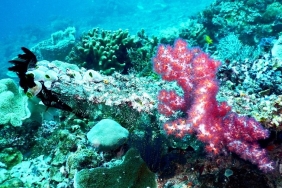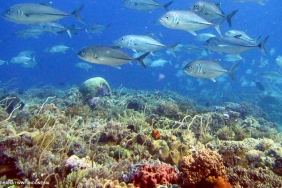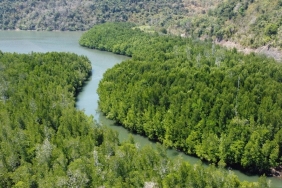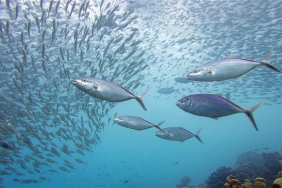SOUTHEAST SULAWESI BEGINS IMPROVEMENT OF PURSE SEINE TUNA FISHERY
"By: Sarawasti Adityarini (Capture Fisheries Officer for Tuna, Skipjack and Tuna Like Commodities, WWF-Indonesia)
Did you know that one of the favorite fishing tools of Southeast Sulawesi fishermen is the purse seine? The purse seine works by encircling an area of fish schools with a net. Next, the bottom of the net is narrowed so that the fish are collected in a bag. The catch is dominated by pelagic fish, namely skipjack, tuna, laying, and baby tuna.
Fisheries using purse seine gear have been practiced in Southeast Sulawesi Province since 1974. The fishery with purse seine gear dominates the catch production of fishermen in Kendari, which is about 83.94% 1).
Given the high contribution of purse seine sector to fisheries production in Southeast Sulawesi, it is important to establish fisheries management with this gear in Southeast Sulawesi as a step to support sustainable fisheries management.
Since 2011, tuna fisheries improvement programs have been developed in various locations in Indonesian waters, so Southeast Sulawesi Province was moved to become an initiator to support the national tuna fisheries program.
PT Pahala Bahari Nusantara (PT PBN), a tuna exporter company engaged in the business of processing yellowfin tuna (Thunnus albacares) and skipjack (Katsuwonus pelamis) into processed products. One of them is tuna loin, which is marketed to Europe, Asia, the Middle East, and America.
PT PBN joined the Seafood Savers cooperation scheme, a WWF-Indonesia initiative that accommodates fisheries industry players to realize sustainable fisheries through fisheries improvement programs to obtain Marine Stewardship Council (MSC) ecolabel certification.
Becoming a member of Seafood Savers is the company's step to support the improvement of tuna fisheries management in Kendari as the location of PT PBN's supply chain. This is in line with the company's commitment that prioritizes aspects of environmental care and sustainability.
As a member of Seafood Savers, PT Pahala Bahari Nusantara participates in a fisheries improvement program that requires the company to implement the Fisheries Improvement Program (FIP) Tuna in Kendari.
Initial Steps: Dissemination of the Tuna Purse Seine Fisheries Management Improvement Program
Dissemination of the Tuna Purse Seine Fisheries Management Improvement Program (17/07/2018) in Kendari was attended by various cross-sectors in both the city and province of Southeast Sulawesi as well as representatives of purse seine fishermen in Kendari. The activity is an initial commitment from the Southeast Sulawesi Provincial government to support the tuna fisheries improvement program on purse seine fishing gear that contributes to the national tuna fisheries program.
"Ecolabel certification for fishery products provides a good opportunity to get recognition that tuna products from Kendari are obtained in an environmentally friendly way," said Tri Kusna, A.Pi, Head of the Capture Fisheries Division of the Southeast Sulawesi Marine and Fisheries Service (DKP). "Certification is important because it increases the stability of fishermen, not only for conservation issues but also to provide benefits for fishermen, especially purse seine fishermen," he continued.
"Through the implementation of the FIP assessment, we will map out what things need to be improved, and then start the big steps to improve fisheries - together," said Pak Heri, PT Pahala Bahari Nusantara. The meeting resulted in an agreement for a study to be conducted to assess the condition of the tuna purse seine fishery in Kendari.
Preparing Small Scale Fishermen, for Big Impact Fisheries Improvement
Government Regulation No. 24/2018 on Electronically Integrated Business Licensing Services (PP No. 24/2018) regulates the Online Single Submission (OSS) system. "Now, there are new provisions related to the Electronically Integrated Business Licensing System," said one of the participants representing the One-Stop Investment and Licensing Office, Arief Rahman.
"Readiness for each agency and party, especially fishermen, of course small-scale fishermen to be able to use this latest system is the main key to implementing this system," he continued.
The homework for improving tuna fisheries is indeed not small. However, it can be done little by little. One of them is through the next meeting, which agreed on a Work Plan to Improve Tuna Purse Seine Fisheries in Kendari.
*Data from Kendari Ocean Fishing Port, 2017"

